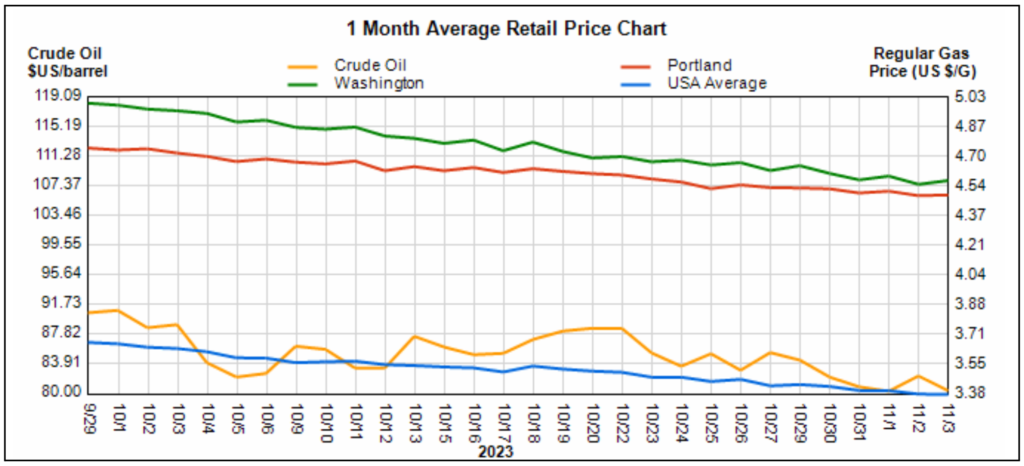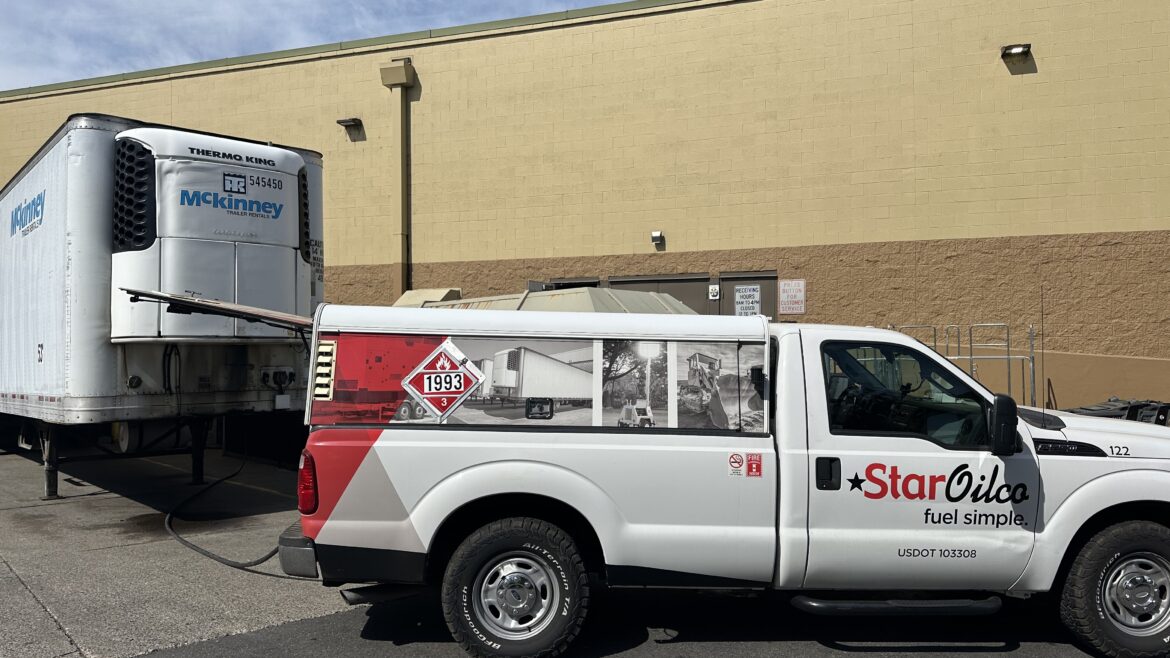Fuel Market Report: Dec 3rd – Dec 9th, 2023





Oregon Fuel Price Variance

Fuel Market News
Fuel prices continue to drop as we roll into December. Prices are down for gas and diesel in Oregon and Washington for the fourth week straight. The average gasoline price in Oregon dropped below $4/gal, although it is rare to see prices this low in the Portland area. Trends are expected to continue downward, as we officially enter the winter season on December 21st.
Reasons For Lower Prices:
- Decreased demand for gasoline
- Oil prices under $75, currently $72/barrel
- Winter Fuel Blend
Crude oil is trading below $75 for the second straight week at a price of $71.40. $2 lower than it was last week, as trends continue downwards. A major factor in why fuel prices have continued to drop. OPEC+ announced last week they will cut oil production temporarily which may affect crude prices over the next few weeks.
Crude oil is the main ingredient for gasoline and diesel. Per AAA, on average about 50% of what you pay at the pump is the price of crude oil, breaking down as 25% refining, 11% distribution & marketing, and 14% taxes—a helpful breakdown for consumers wondering why they are paying the prices that they pay. Crude Oil is trading around $72 per barrel compared to $74 last week and $91 a year ago.
It’s essential to recognize that fuel prices result from a complex interplay of the factors mentioned above in addition to other factors regionally. Additionally, prices may vary by specific regions within Oregon and Washington. For the most precise and up-to-date information on fuel prices and the causes for these price changes within your area, it is advisable to consult local news outlets, government energy agencies, or industry reports.
If you have any questions, feel free to contact Star Oilco and speak to one of our fuel market advisors to discuss how the market can impact your business.
































